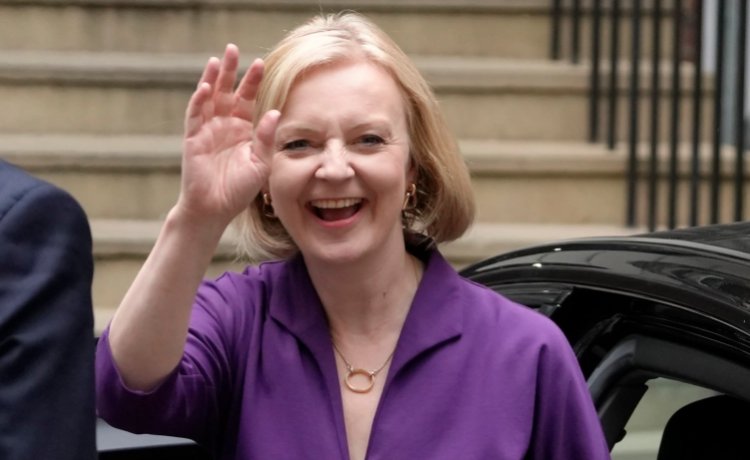What we Expect from UK’s New Prime Minister; Liz Truss.
LONDON — Liz Truss will be the next prime minister of the U.K. after comfortably seeing off rival Rishi Sunak in the race to lead the governing Conservative Party. Truss defeated rival Rishi Sunak in a vote of Conservative Party members on Monday and will inherit one of the most daunting in-trays of any new leader, with Britain on course to enter a lengthy recession due to surging inflation.

- Liz Truss, who is she
The new Prime Minister of the United Kingdom is Liz Truss. And here's a primer to help you get to know the new leader:
Following the resignation of her former boss, Boris Johnson, Liz Truss would become the third female prime minister of the United Kingdom.
She intends to follow in the footsteps of her hero and conservative icon Margret Thatcher, who has served as the standard against which all other conservative leaders are measured, although she hates the comparison to the former leader.
She has previously worked for three former Prime Ministers.
David Cameron appointed her as environment secretary, and she served as Theresa May's justice secretary, and in 2019, Boris Johnson appointed her as Foreign Secretary 2021.
- v She is 47 years old, married, and the mother of two daughters.
She worked as an accountant for Shell and Cable & Wireless after graduating from university and married fellow accountant Hugh O'Leary in 2000. Thetford, Norfolk, is where the family resides.
- She was a former Liberal Democrat.
She campaigned for the Lib Dems while at Oxford University, and the party conference in 1994, she spoke in favor of abolishing the monarchy. While still at university, she switched to the Conservatives.
- Her parents are "left-wing," according to her.
When she was four years old, her family moved to Paisley, Scotland, and then to Leeds, where she attended a state secondary school. Her mother allegedly took her to marches against nuclear weapons.
- She won a leadership election, not a general election.
She succeeded Boris Johnson as Conservative Party leader after receiving the most votes from Conservative Party members. The next election isn't scheduled to take place until January 2025, unless an earlier election is called.
- She has previously worked for three former prime ministers.
David Cameron appointed her as environment secretary, and she served as Theresa May's justice secretary, and in 2019, Boris Johnson appointed her as Foreign Secretary 2021.

- She has promised to "cut taxes from day one."
Truss pledged to deliver on a slew of campaign promises and lead the Conservatives to victory in the next election after being named leader. "I know our beliefs are shared by the British people," she said, adding, "I campaigned as a Conservative, and I will govern as a Conservative."
She has promised to "cut taxes from day one. "This includes repealing the April National Insurance increase and suspending green taxes on energy bills to help people cope with rising costs.
- She voted Remain in the Brexit referendum.
But after the result, she changed her mind and declared Brexit an opportunity for the UK. She was popular amongst Brexit-supporting Conservatives in the leadership election.
 Liz Truss to be officially welcomed as PM by the queen on the 6th of September, PHOTO FILE
Liz Truss to be officially welcomed as PM by the queen on the 6th of September, PHOTO FILE
Truss will fly to Balmoral, the queen's Highland estate, on Tuesday to be officially sworn in as prime minister before naming her new Cabinet against the backdrop of the United Kingdom's economic turmoil.
Any prime minister would face difficulties during this period. Truss is in an especially difficult position given the low level of support she has among her party's MPs and the short time remaining before the next election. Of course, a lot of noise can be made, but little progress can be made.
If Truss leads her party to defeat in the next general election, as polls predict, she will join the ranks of other prime ministers who took over in the middle of a term and were defeated, such as Callaghan (1979) and Gordon Brown (2000). (2010). That is not uncommon.
The odds are stacked against Truss's premiership or her party's chances in the next general election. Truss is the UK's fourth prime minister in just over six years, since the Brexit referendum, and we may soon have our fifth after the next election.
Yet, more unusual things have happened in British politics in recent years than a successful Truss premiership, so all one can say with certainty is that the next two or so years will be as politically interesting as the previous six or seven.

 Steve Mburu
Steve Mburu 
























